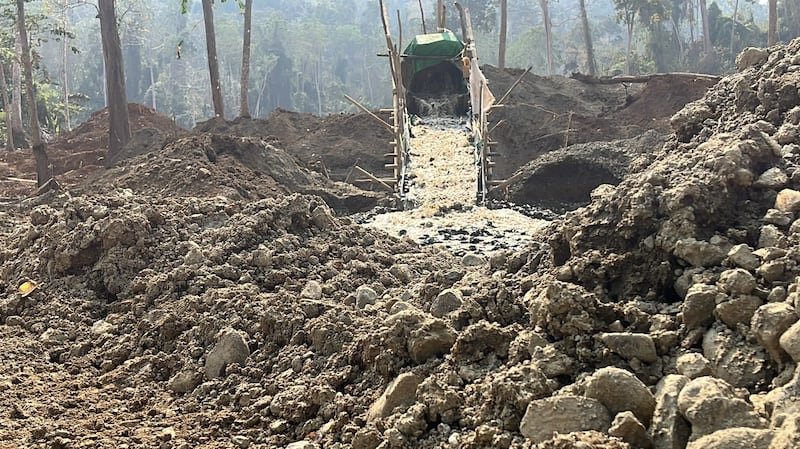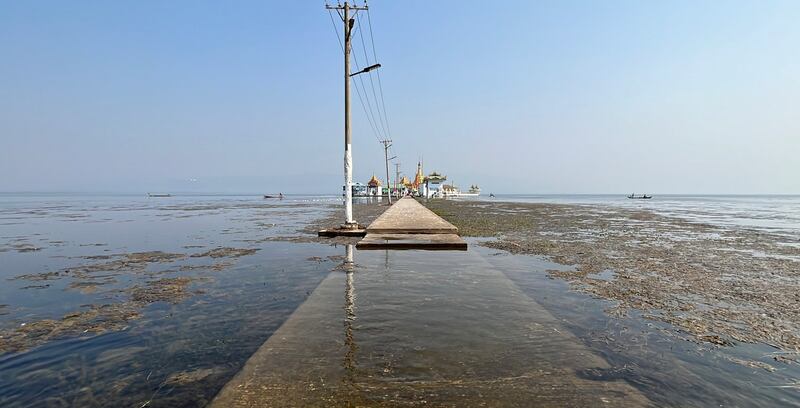Gold mining is threatening wildlife living in and around Indawgyi lake, Myanmar’s largest natural lake and a UNESCO-designated wildlife sanctuary and world cultural heritage site.
Following the February 2021 military coup that ousted Myanmar’s democratically elected government, regulation for the mining industry near the lake in Kachin state has been almost nonexistent.
According to residents who live nearby, miners will dig for gold right next to populated villages, and they have no power to stop them.
Not only does the mining contaminate the water that the residents need for drinking, it also causes floods in villages. Polluted streams then flow into the lake, damaging the habitat of rare species living there, including two endangered kinds of fish.
Mining also prevents tourists from coming to see the majestic lake, which sits 166 meters (546 feet) above sea level and is surrounded by mountains.

Now the lake faces the prospect of draining due to excessive mining.
A local junta official confirmed to Radio Free Asia that illegal gold mining was occuring around the lake, but said it was only in areas controlled by an ethnic armed group. Residents however said that both the junta and the armed group allow it.

In 2016, UNESCO designated the lake as the third largest inland wetland in Southeast Asia, and in 2017 it gave the lake world cultural heritage status.
Translated by Myo Min Aung. Edited by Eugene Whong.
